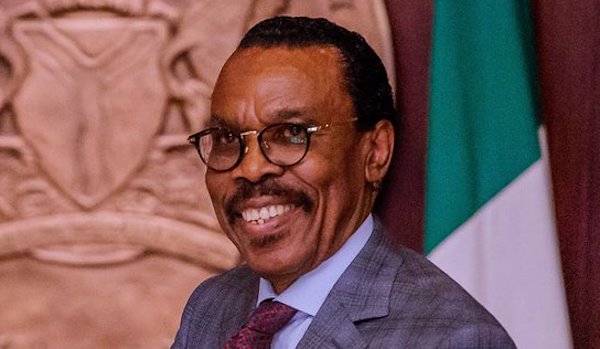Business
Financial expert, Rewane warns against drastic spending cuts

The Chief Executive Officer of Financial Derivatives Company, Bismarck Rewane, has called for a measured and realistic approach to managing Nigeria’s fragile economy.
He warned that harsh spending cuts could do more harm than good at a time when investment and security are desperately needed.
Rewane spoke during an appearance on Channels Television’s Business Morning on Thursday
He was reacting to a recent International Monetary Fund (IMF) report which declared that Nigeria’s economic outlook was clouded by “significant uncertainty.”
He cautioned that the solution does not lie in slashing public expenditure, but rather in plugging leakages and deploying funds more efficiently.
“Cutting expenditure is not the same as optimising it,” Rewane said.
“What the IMF is really advising is that we maximise the impact of our spending. There are countless leakages across both state and federal levels acting as investment repellents.
“But this is not the time for austerity. Asking Nigeria to drastically cut spending now is like asking a man with ulcers to go on a hunger strike—it just doesn’t make sense.”
While urging fiscal prudence, Rewane was quick to clarify that optimisation is not a license for reckless spending. “We cannot afford to spend like drunken sailors. Every naira spent must have a purpose and a measurable return,” he warned.
Rewane acknowledged recent reforms introduced by President Bola Tinubu—namely, the removal of fuel subsidies and exchange rate unification—but insisted these measures must be complemented by broader structural reforms.
READ ALSO: Ben Affleck, Jennifer Lopez clash over sale of their $68m Beverly Hills residence
“What worked in 2023 may not work for 2025,” he said. “We must stop trying to drive forward while looking in the rearview mirror.”
The economist also raised the alarm over persistent insecurity in oil-producing regions, which continues to suppress oil output—Nigeria’s economic lifeline. “Until we fix the insecurity in the Niger Delta and other production zones, oil output will remain weak, and so will government revenue,” he noted.
Turning to inflation, Rewane offered a less pessimistic outlook than the IMF’s 2025 projection of 30%, forecasting instead a marginal rise to 25–27%. He noted, however, that ongoing liquidity pressures may leave the Central Bank of Nigeria (CBN) with little choice but to maintain or even raise interest rates.
He also questioned recent moves by the Debt Management Office (DMO) to reduce bond issuance—from ₦1.8 trillion in Q1 to ₦1.2 trillion in Q2. “This is the wrong direction. Issuing more bonds is one of the tough but necessary steps to soak up liquidity and control inflation,” he said.
Rewane raised concerns over the pricing of Nigeria’s crude exports, revealing a troubling disparity. “We are selling crude at 70 cents, while some of our neighbours are getting $1.20 for the same grade. How long can we continue like this?”
He applauded the Dangote Refinery for reducing local fuel costs, calling it a “strategic development,” but cautioned that plans by the Organisation of Petroleum Exporting Countries (OPEC) to ramp up global production could depress oil prices even further.
On the international front, Rewane commented on former U.S. President Donald Trump’s hint at tariff reductions on China. While the move may ease some economic pressures, he said, global uncertainty is far from over.
He predicted moderate economic stabilisation between May and June this year and dismissed fears of a deep global recession. “Any recession that does come will be mild,” he said. “The world simply can’t afford more economic shocks right now.”
Rewane closed on a pragmatic note, urging Nigerian policymakers to bridge the fiscal gap through a combination of responsible borrowing, leak reduction, and bold fiscal reforms.
“These are not normal times. And to survive abnormal times, we must make serious adjustments,” he said.
Join the conversation
Support Ripples Nigeria, hold up solutions journalism
Balanced, fearless journalism driven by data comes at huge financial costs.
As a media platform, we hold leadership accountable and will not trade the right to press freedom and free speech for a piece of cake.
If you like what we do, and are ready to uphold solutions journalism, kindly donate to the Ripples Nigeria cause.
Your support would help to ensure that citizens and institutions continue to have free access to credible and reliable information for societal development.






















